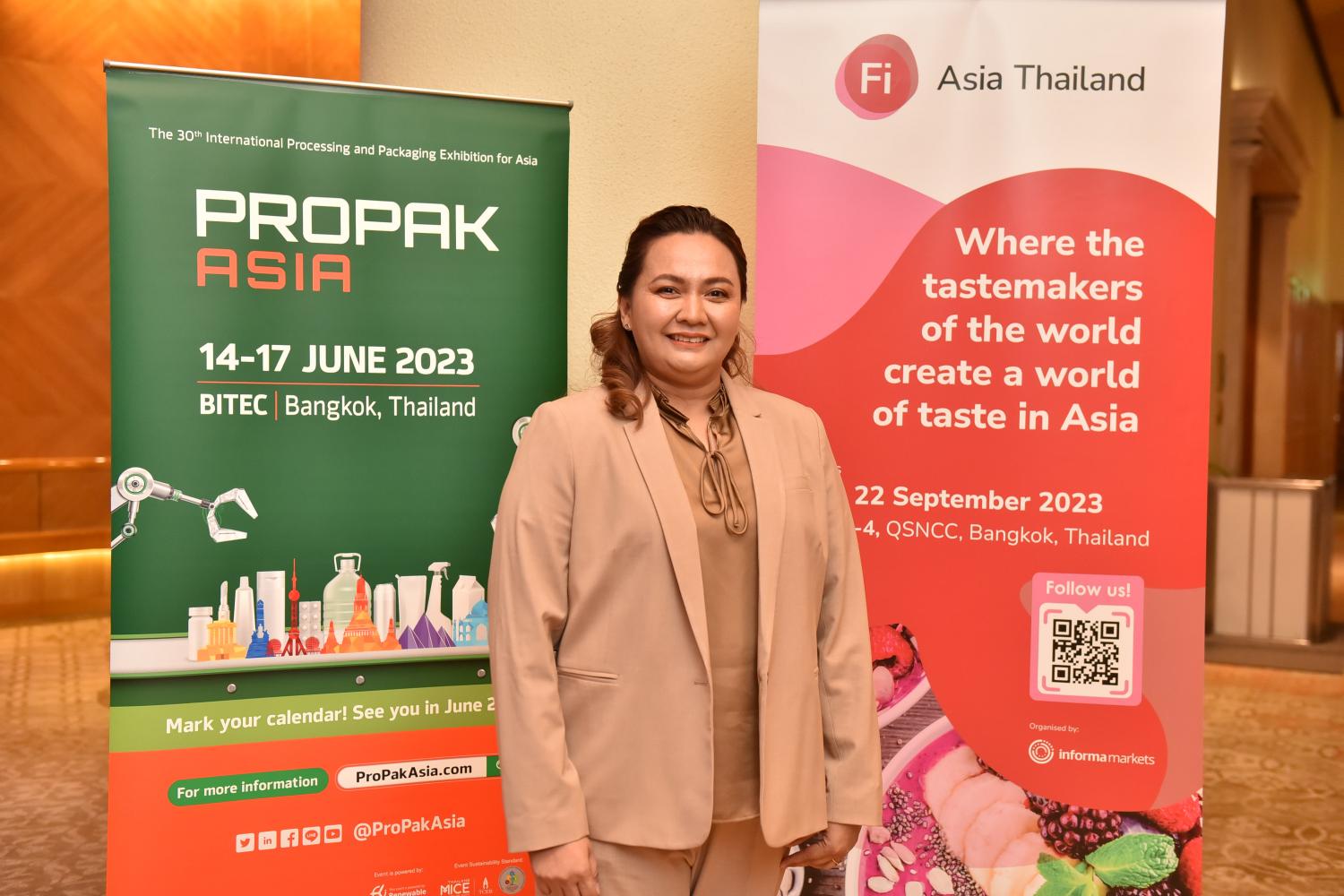
Though the volume of visitors this year is projected to return to 2019 levels, Informa Markets believes global inflation and volatile economies in Europe and the US might affect the transaction value during its two international events targeting the food industry.
Rungphech Chitanuwat, regional portfolio director for Asean at Informa Markets, said Thailand has advantages in the development of food innovation and technology, with the food industry among the top categories for the exhibition segment.
The country is attractive to exhibitors because of its low hotel rates, diverse quality of food and convenient transport, especially as more flights to Thailand have resumed compared with rivals in Southeast Asia, said Ms Rungphech.
In June Informa Markets plans to host ProPak Asia 2023, a processing and packaging technology exhibition, followed in September by Fi Asia 2023, a food and beverage ingredients exhibition.
Both events promote the ecosystem of the Thai food industry, helping it to compete in the world market, she said.
ProPak Asia is expected to draw 45,000 visitors, with 20% from overseas. Fi Asia should attract 16,000 visitors, with 60% from overseas, said Ms Rungphech.
She said both events have the potential to see volume returning to 2019 levels.
However, with projected revenue of a billion baht for each event, this remains lower than pre-pandemic earnings because of higher operating costs, such as a hike in the venue rental fee and marketing activities to draw more visitors.
Many entrepreneurs have grown accustomed to online meetings and are reluctant to resume face-to-face meetings since the pandemic, said Ms Rungphech. Business transactions during the exhibitions could slow, attributed to high inflation globally and an increased cost of living.
Given high inflation and economic volatility in Europe and the US, which affects their exports, she said Thailand, which maintains a stable interest rate and banking system, could seize the market from Europe by exporting more food ingredients and technology. Ms Rungphech encouraged more production from small and medium-sized enterprises (SMEs).
With less exports of crops and grains from Russia during the war, Thailand should also promote these raw ingredients, she said.
Ms Rungphech said the next government should issue policies that offer more support for the food industry, especially SMEs who cannot access funds and technology. A collaboration between ministries to support the ecosystem is also needed, she said.







